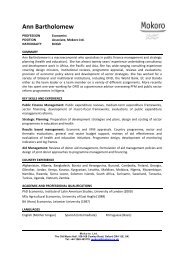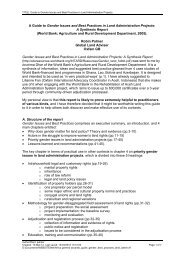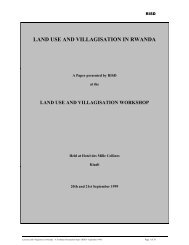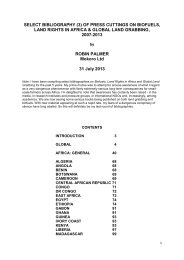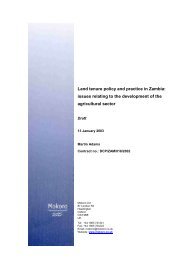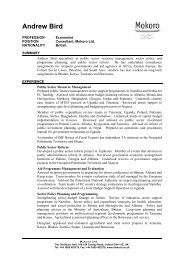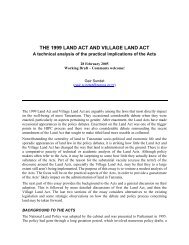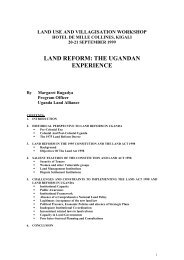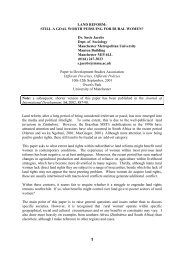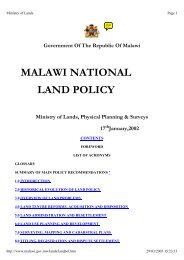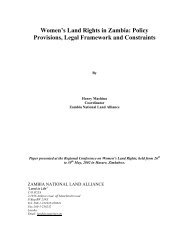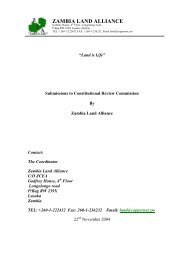Download - Mokoro
Download - Mokoro
Download - Mokoro
- No tags were found...
Create successful ePaper yourself
Turn your PDF publications into a flip-book with our unique Google optimized e-Paper software.
48able to work to produce for our families and also will allow us to thinkabout the market. This will be family land and will be controlled by thosefamilies (Amajuba farm dwellers).Similarly, the overwhelming consensus across all of these workshops was that themodel of land use would rely solely on family labour in the first instance, and it wouldonly be if they were successful and able to expand production over time thatemployment of others would be considered. Some were uncomfortable about becomingemployers, especially those who are farm dwellers currently, and preferred to extendmembership of projects to employment of non-members. The only exceptions to thispreference for family labour were some small farmers who were better resourced andaimed to expand into small to medium scale commercial production, and those whoenvisaged a need for specialist skills for non-farming activities, such as mining.Participants at the workshops saw settlement as central to their intended uses of land,and expressed an overwhelming preference for living on the land acquired. Those withan interest in group-based projects envisaged that the number of people settling on theland would justify the development of some basic physical and social infrastructure.However, those wanting smallholdings to be owned and operated by a single orextended household recognised that this may mean a lower level of service delivery andinfrastructure. The only exception to the preference for settlement on redistributed landwas from some of those living in communal areas, who preferred to remain in theirvillages, retain their social networks and instead commute to their new land. Exceptamong restitution claimants and labour tenants, whose interest was in specific land,there was a strong preference for land close to towns and alongside major roads.In each workshop, participants identified a need for support for inputs and marketing. Itis striking that selling fresh produce to retail outlets, particularly the larger chain stores,seemed beyond the realms of possibility for many participants, who are aware that theymay not be able to meet the requirements of volume and quality – or of certification. Keyproposals were: State-supported input supply cooperatives which would allow small farmers to buyinputs in bulk, at cheaper prices, and also provide the basis for equipment-sharingarrangements; Establishment of small farmers’ markets in towns, to provide a point of sale for smallquantities of fresh produce; Secured contracts to supply state institutions, such as hospitals and schools withfresh produce; Veterinary services and support to access abattoirs and livestock auctions – andcreation of these in areas where they do not exist.Facilitate meetings between emerging farmers and commercial farmers toensure that we can get access to markets and overcome thediscrimination in the market. Where the quality of our produce is not whatis required (where the problem is not only discrimination), we must find astrategy with the support of government and the private sector to meetthese standards (Southern Cape and Central Karoo).The priority is to produce for our families, and then government needs toopen opportunities to produce for local markets like hospitals andPolicy Options for Land and Agrarian ReformProgramme for Land and Agrarian Studies, University of the Western Cape



